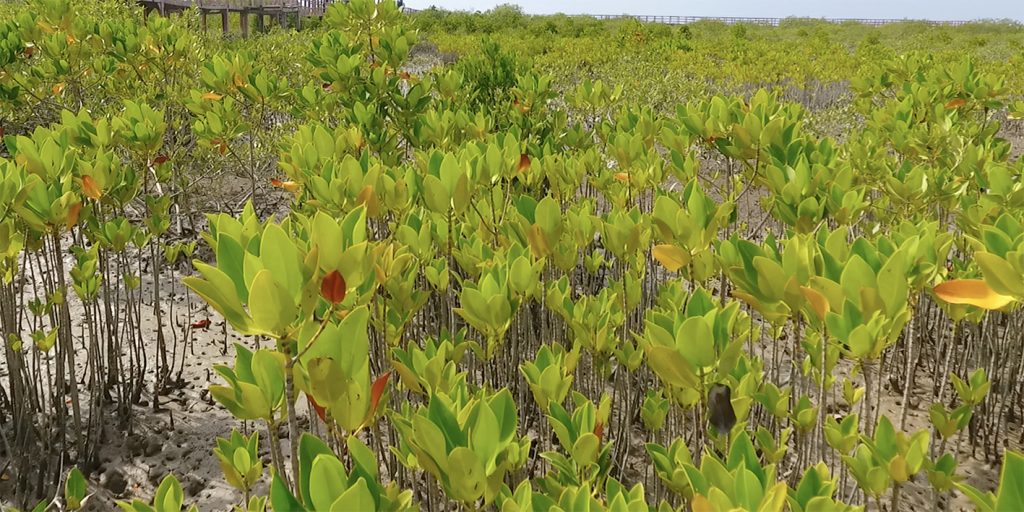The Majesty Of Mangroves
What makes these incredible plants a real eco-treasure

Mangroves are amongst the most productive marine ecosystems on Earth. They provide a safe refuge for a host of aquatic organisms, protect the coastline from erosion and secure the economic livelihood of coastal communities.
Mangrove forests are also incredibly effective carbon sinks. These ecosystems sequester and store large quantities of carbon in both the plants and the soil below, so are an essential piece of the solution to global climate change.
Research shows that coastal mangroves outperform most other forests in their capacity to store carbon.
One study found that per hectare, they can hold up to four times more carbon than other tropical rainforests.
The Indus delta mangrove forests are unique in being the largest area of arid climate mangroves in the world. The delta is a vast complex of tidal river channels and creeks, low-lying sandy islands, mangrove forests and inter-tidal wetlands.
With their roots submerged in water, mangrove trees thrive in the hot, muddy and salty conditions found there.
Once safeguarded, the delta’s tidal wetlands will help maintain nature’s balance, providing vital ecosystem services.
Protected wetlands ensure air quality regulation and climate regulation through atmospheric carbon sequestration and storage.
They help moderate the disturbances caused by tsunamis, floods and provide a natural barrier against coastal erosion. The complex network of mangrove roots can help reduce wave energy, shielding coastal communities from the destructive forces of storms.
Mangroves are also essential to maintaining water quality as they filter and trap sediments, heavy metals and other pollutants in their roots.
The ecosystem also assists in pollination of crops as well as aids biological control of insects, other pests and diseases.
Healthy mangrove ecosystems also mean healthy fisheries. They provide nesting and breeding habitat for fish and shellfish and migratory birds.
An estimated 80% of the global fish catch relies on mangrove forests either directly or indirectly. Coastal communities who live in the delta are fishers and farmers who depend on their natural environment to provide for their families.
